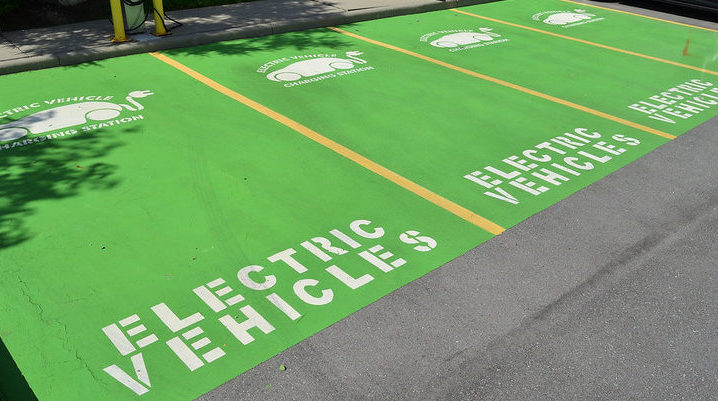
Photo: Open Grid Scheduler (Flickr)
Boston seeks partners to expand EV charging network
17 July 2023
by Christopher Carey
The City of Boston has announced two initiatives to increase the availability of on-street electric vehicle (EV) charging stations.
Two requests for proposals (RFPs) have been launched to find private partners to boost the number of public, on-street charging stations and ensure they are distributed equitably.
The city’s goal is that every household will be within a 10-minute walk of a publicly accessible EV charger by 2030.
“As we continue to make changes to our streets to better serve all modes of transportation, we also want to make it more viable to choose to drive electric by supporting the expansion of charging infrastructure at the kerb and in our municipal lots,” said Jascha Franklin-Hodge, Boston’s Chief of Streets.
“These investments will create a more accessible and equitable charging network which will expand the options our residents have in how they choose to travel.”
Two requests
The first RFP is asking companies to install privately owned kerbside chargers in up to 30 different locations, and the second is looking for a vendor to build and maintain 60 city-owned chargers in 15 locations.
The city-owned chargers will be funded with US$1.35 million from Boston’s Streets Cabinet – a division that oversees the Transportation and the Public Works departments.
These units will include 16 of the slower Level 2 chargers, which can take up to 10 hours to recharge, and eight fast chargers that take 20-60 minutes.
While the city continues to build EV charging stations in municipal car parks, it reports that the demand for on-street chargers is much greater.
On-street charging
Proposals for the privately owned on-street chargers must not involve any cost for the municipality, but if awarded, the kerb space will be provided for free to the contractor.
It’s currently unclear how many would be equipped with fast chargers, which require more power and can be more expensive to install.
“We know that to eliminate climate change and environmental pollution, residents, commuters and visitors cannot rely on personal vehicles, but if they need a car it should be electric,” said Boston’s Green New Deal Director Oliver Sellers-Garcia.
“As we implement a Green New Deal for Boston, we are looking for ways to make the inevitable EV transition work best for our city.
“We’re focusing on strategies that address the needs of drivers who can’t charge at home, and we’re seeking to create a market that can bring more workers into the business of decarbonisation.”
Proposals for each request are due by July 26, 2023.
Open Grid Scheduler (Flickr)








